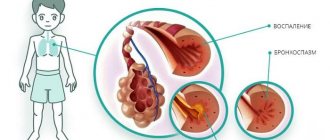A person, regardless of gender and age, constantly contains 1100-1200 mg of calcium in the body. It is present in teeth and bones. Very little of the mineral is found in urine, blood and saliva. With constant physical activity and while carrying a child, the body needs more calcium. If there is a lack of it, bone problems and diseases can begin. In this case, Calcium d3 Nycomed will help.
Where does excess calcium in the body come from?
The macroelement enters the body along with the foods a person eats, medications or dietary supplements. The main causes of hypercalcemia are recognized:
- Hormonal imbalances.
- Excess vitamin D in the body.
- Oncological diseases.
- Pathologies or disorders in the nervous system.
- Hereditary diseases.
If the list of reasons does not correspond to the real picture, an excess of this macronutrient is likely if:
- Increased body weight;
- Long-term sedentary lifestyle;
- Drinking large quantities of alcoholic beverages;
- Long-term use of diuretic medications, which remove excess substances from the body.
The diagnosis can only be made by a doctor based on test results.
Why does an overabundance of macronutrients occur? Vitamin D and hormones are responsible for the absorption of gluconate. With an excess of vitamin D and hormonal imbalances, the body either insufficiently absorbs the substance or experiences an excess.
Parathyroid hormone is responsible for changing the calcium content in the blood and sucking it into the intestines. The hormone begins to be produced under conditions of insufficient macronutrient content in the blood.
Calcitonin, a hormone responsible for the functioning of the thyroid gland, limits the production of macronutrients.
Calcitriol is the hormone responsible for the production of vitamin D3. Together with parathyroid hormone, it increases the concentration of the metal in the blood. The body does not fully absorb the calcium consumed by a person and makes a sample. Some penetrate into the intestines, some into the kidneys and blood.
Calcium overload occurs when there is too much vitamin D in the body.
What is the drug and its composition?
Available in chewable tablets.
There are 3 flavors, as well as a drug with an increased dosage of cholecalciferol (Forte):
- orange. 20, 50 or one hundred pieces in a bottle;
- mint or lemon. Same number of tablets, same packaging;
- forte. 30, 60 or 120 pieces;
1 capsule contains:
- Calcium carbonate – 1.25 grams, translated into pure microelement 0.5 grams.
- Cholecalciferol or vitamin D3. About 0.005 milligrams. The presence of the prefix forte indicates that the amount of the substance is doubled.
Additional components, namely:
- aspartame;
- sorbitol;
- magnesium stearate;
- oils (orange, lemon, mint oil, which is responsible for taste);
Symptoms of calcium overdose
Main symptoms:
- vomit;
- dry skin;
- brittle hair;
- constipation;
- weakness;
- depression;
- poor digestion;
- loss of appetite;
- headache;
- convulsions;
- thirst;
- irritability.
- lower abdominal pain;
- nausea;
- sun intolerance.
- drowsiness and apathy;
- dizziness;
- hallucinations, memory loss.
If you notice any of the symptoms, make an appointment with your doctor immediately. Self-medication will only do harm. The level of the substance is determined through a blood test.
Hypercalcemia shortens life expectancy
To prolong life, scientists recommend reducing the amount of calcium consumed. Healthy nerves are a consequence of small consumption of the substance. Scientists believe that the daily dose is 400 mg. There is no danger of death in case of an excess of macronutrients. But exceeding the norm threatens a number of cardiovascular diseases. The risk of death from the latter increases several times.
There are people known who have spent their entire lives consuming less of the element than needed, and they are distinguished by their longevity. Advice for those who also want to live longer than the average Russian person:
- Drink water with a lower concentration of macronutrients. So-called “soft” water is useful. In the water that centenarians drank, this level was 8-20 mg per 1 liter.
- The level of macroelement concentration in their blood was significantly different from other people and did not exceed 5 mg per 100 g of blood.
- These people did not have dairy products in their diet.
How to lower calcium levels?
The recommendations include the following points:
- Reduce the amount of tap water you consume. It is recommended to drink filtered water.
- Remove from the diet drugs containing macronutrients and vitamin D3.
- Reduce consumption of foods high in macronutrients (milk, sour cream, eggs, cabbage, parsley, cottage cheese).
- Reduce consumption of chocolate, almonds, rice, loaves, hazelnuts.
- Include the medicine “Fitin” in your diet; the medicine will help reduce the absorption of the substance into the intestines.
- Eat more foods containing vitamin A, drink more green tea, love oatmeal.
Consequences of calcium poisoning:
- Calcinosis. The formation of salts, manifested in painful hematomas on the body.
- Arterial hypertension. Increased blood pressure caused by deposited calcium salts.
- Gout. A disease that occurs due to changes in metabolism and salt concentration of the body. Manifests itself in difficulty removing urine from the body.
- Hyperparathyroidism. Endocrine disorder caused by changes in salt balance.
- Formation of salts.
- Decreased levels of magnesium and sodium in the blood.
- Heart attack, stroke.
- Change in alkaline balance.
- Brittleness and fragility of bones.
- Heart failure.
- Body cells age faster.
- Anorexia.
- Heart rhythm failure.
- Malfunction of the cardiovascular system.
- Death of muscle tissue in the body.
- Formation of kidney stones.
- Kidney failure.
- Premature aging.
Reviews from doctors about Kalcemin
According to reviews from working doctors, it is difficult to choose just one product, since these are direct analogues and their cost is almost the same. Doctors speak positively about the use of dietary supplements.
Patients note that with the start of therapy, their health quickly improves, their nails and teeth become stronger.
The drug also has benefits for hair, it stops breaking and falls out less. Due to its active effect on the body, the medicine must be taken strictly as prescribed by the doctor, avoiding an overdose.
Have you taken Calcium-D3 Nycomed or are you currently taking it? Share your impressions of the drug and why you chose it and not one of its cheaper analogues. Friends and colleagues are interested in hearing your opinion.
Calcium during pregnancy
Pregnant women primarily need this macronutrient, because a woman should receive 2 times more vitamins, macro- and microelements, for herself and for the child. During this period, calcium is needed to keep teeth and bones strong longer.
For calcium deficiency, doctors prescribe medications:
- Calcium D3 nycomed;
- Complivit calcium D3;
- Calcium gluconate - prescribed injections or in tablet form.
It is not recommended to prescribe the listed medications yourself; medications are taken under the supervision of a doctor.
Drug interactions
It is not recommended to take the drug simultaneously with tetracycline antibiotics and quinolone, since their absorption is reduced. If such a combination is still necessary, it is recommended to take these medications 2 hours before or 4-6 hours after taking Calcium-D3Nycomed. The patient must be under close medical supervision throughout the entire treatment period.
Hypercalcemia that develops as a result of taking a mineral supplement can potentiate the toxic effects of cardiac glycosides. Monitoring serum calcium concentration and ECG monitoring is necessary.
Calcium absorption is reduced by glucocorticosteroids, so an increase in the dose of the supplement may be required.
Calcium reduces absorption and reduces the effectiveness of levothyroxine, so the interval between doses should be at least 4 hours. Bisphosphonates, if necessary, are recommended to be taken no later than 1 hour before taking Calcium-D3Nycomed.
The risk of developing hypercalcemia increases with simultaneous use of thiazide diuretics. In this case, it is necessary to regularly monitor the concentration of calcium in the blood serum.
Overdose Prevention
Maintaining a balance of consumption of macro- and microelements and vitamins. If the rule is violated in adults, the level of calcium consumed can reach up to 5000 mg per day, although the average daily dose is 500 mg.
Take vitamin D with caution. Exceeding the dose leads to changes in the level of the macronutrient gluconate.
First aid:
- Prevent the use of gluconate or other substances and medications containing metal ions.
- Make an appointment with the doctor.
- It is not recommended to rinse the stomach with a solution of potassium permanganate; the patient may only get worse.
- To induce vomiting, drink 1 liter of water in one gulp. Sweet tea will be helpful afterwards.
Contraindications for the use of drugs containing the substance:
- Elevated levels of calcium in the blood.
- Malignant tumors.
- Allergic reactions to medicine.
- Chronic kidney disease.
- Hereditary diseases.
- Taking diuretics in parallel with gluconate.
- Myeloma.
- Changes in the functioning of the thyroid gland.
- Taking too large doses of medication.
- Metastases in bone tissue.
Indications for use
Tablets are recommended for use for the following diseases (their prevention):
- Osteoporosis. A chronic disease characterized by decreased bone density. It can occur in almost anyone.
- Hypocalcemia. Disruption of electrophysiological processes at the cellular level is manifested by extremely low levels of serum calcium. It can be caused by a huge number of reasons.
- Osteomolation. When mineral metabolism is disrupted, a disease appears that causes softening of the bones.
- If necessary, saturate the body with calcium , vitamin from group D. Acts as a vitamin complex.
- It is recommended to take during pregnancy or lactation to replenish lost elements, which the composition of the chewable tablet is rich in. But the dosage is selected individually, only by a doctor.
How to take gluconate and medications containing it
Depending on the level already present in the blood, the amount of drug consumed per day differs. For prevention, patients adhere to the following rules:
- 1 tablet with half a glass of water. See how many grams 1 tablet contains: the greater the specific gravity, the less you need to consume at a time. See the instructions for the number of tablets.
- It is better to take with food.
- It is recommended to use no longer than the duration of the course.
Monitor the level of calcium gluconate in the blood, because an excess, like a deficiency, can lead to serious illnesses. Maintain a balance of macro- and microelements and vitamins in the body. And be healthy!
Contraindications and adverse reactions
You can read the instructions for side effects. These include:
- from the metabolic side: hypercalciuria and hypercalcemia - expressed by decreased performance, lethargy, unclear thinking, problems with the heart and blood vessels;
- from the gastrointestinal tract: intestinal upset, nausea, vomiting, attacks, abdominal pain;
- from the central nervous system: excessive excitability, emotionality;
- on the skin: itching, rash, urticaria (can be confused with any other condition, since these symptoms are characteristic of many diseases).
The drug is contraindicated in the following cases:
- excess zinc in the blood;
- individual intolerance to at least one component;
- renal failure;
- tuberculosis.






